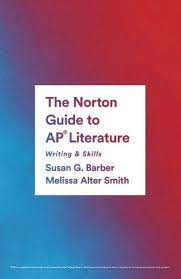Thanks to Emily Wessel for sharing thoughts from this year’s reading. You can find the prompt and poem here: 2024 FRQ Set 2 Exam Questions
This was my first year reading for Q1 and I really enjoyed it. This poem was accessible and allowed students to explore many different literary elements and techniques. I will definitely use this poem to introduce FRQ1 to my students this year.
What students did well:
Thesis
Students could definitely tell there were mixed feelings about summer in Esteville, North Carolina. Many students noted contrasting viewpoints about the land, animals, humans, and insects. Students used information from the prompt and poem to construct defensible Thesis statements.
Commentary and Evidence
Students were easily able to identify different literary elements and techniques. The majority of students discussed the importance and significance of imagery. Structure was often talked about since the poem is divided into 12 quatrains and contains multiple shifts. Students expanded on the use of allusions, as well. Many students were able to draw a strong Line of Reasoning since they focused on HOW the literary elements and techniques supported the complexity.
Sophistication
Because the prompt asked about complexity, the most common way I saw students earn the point in Row C was through vivid and persuasive writing. There were some well written responses who connected the poem to a broader context, but these were few and far between. Expanding on the complexity of the poem and fully explaining it while arguing the complexity made for impressive writing.
Where students can improve:
Thesis
The prompt asks for students to analyze “a complex portrayal of the setting.” Many students simply restated the prompt as the thesis and did not earn the Thesis point. Students should state the complexity in the Thesis so they can support that Thesis in their Line of Reasoning. Students should not describe the setting, but what is complex about the setting. If students are able to pick out two contrasting viewpoints or feelings, they are on the right track. Students also do not have to state the literary elements and techniques used in the thesis. Stating the Thesis in the Introduction Paragraph or first or second sentence of the response helps to keep students on track when writing the rest of the response.
Commentary and Evidence
Students who organized their responses chronologically did much better connecting their evidence to the Thesis than those who organized by literary element or technique. Many students got lost in only summarizing what the literary element/technique was and never actually connected it to the Thesis to explain and support the complexity.
Since the prompt asked about the complexity of the setting, there was no need to address “the reader.” Students should use the evidence and their commentary to support the complexity. “The reader” does not need to be addressed.
Sophistication
If a student states there is a deeper meaning, they need to actually say the deeper meaning and then add in commentary to support it.
Teaching points/extensions for the classroom:
- Since the AP Literature Exam is moving completely digital in 24-25, take the time to model online annotations and/or reading a text online and using paper to annotate.
- Complexity is two sides, and those sides are usually opposing. Whenever you discuss complexity, make sure students understand two contrasting sides, and are able to identify and explain both.
- Review setting in terms of the AP Literature CED (p. 120). Setting is more than just time and place.
- Choose poems and excerpts that focus on setting so students can practice finding and explaining complexity. Some options are:
- Excerpt from “Where the Crawdads Sing” by Delia Owens (choose any description of the setting)
- “The Road Not Taken” by Robert Frost (students are probably familiar with this poem, so ask them to identify the setting and then address what is complex about it)
- “Spring” by Christina Rossetti
- Additional resources for reviewing Setting in Poetry created by Emily Wessel
- “On Summer” Activities created by Emily Wessel
Table 1 is #1: As my Table Leader, Jeff Larsen, told us every day, “Not all heroes wear capes.” He made sure we felt like heroes on Day 7 by giving us capes and masks.
Emily Wessel teaches AP Literature and English 9 at Riverbend High School in Fredericksburg, Virginia. Emily is an avid reader and has fallen in love with the Romantasy genre this year. In addition to reading, Emily enjoys vacationing in the mountains, hiking, and spending time with family.












